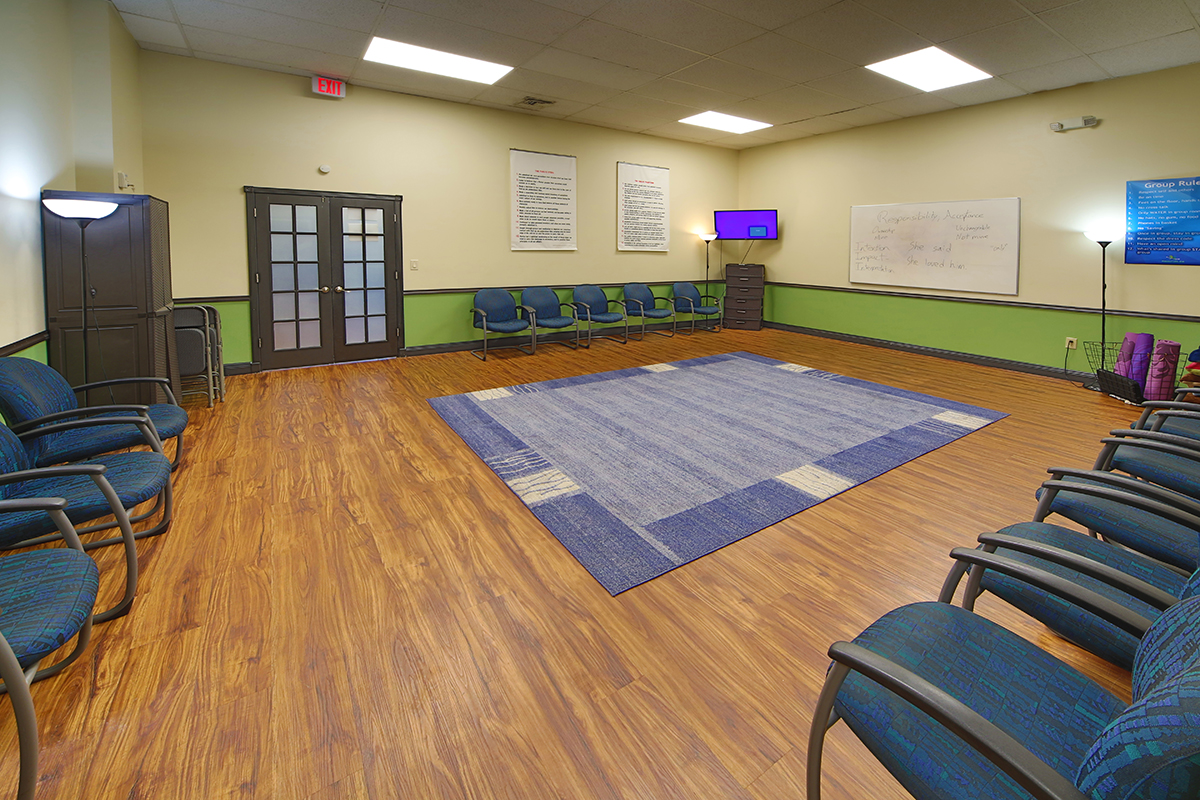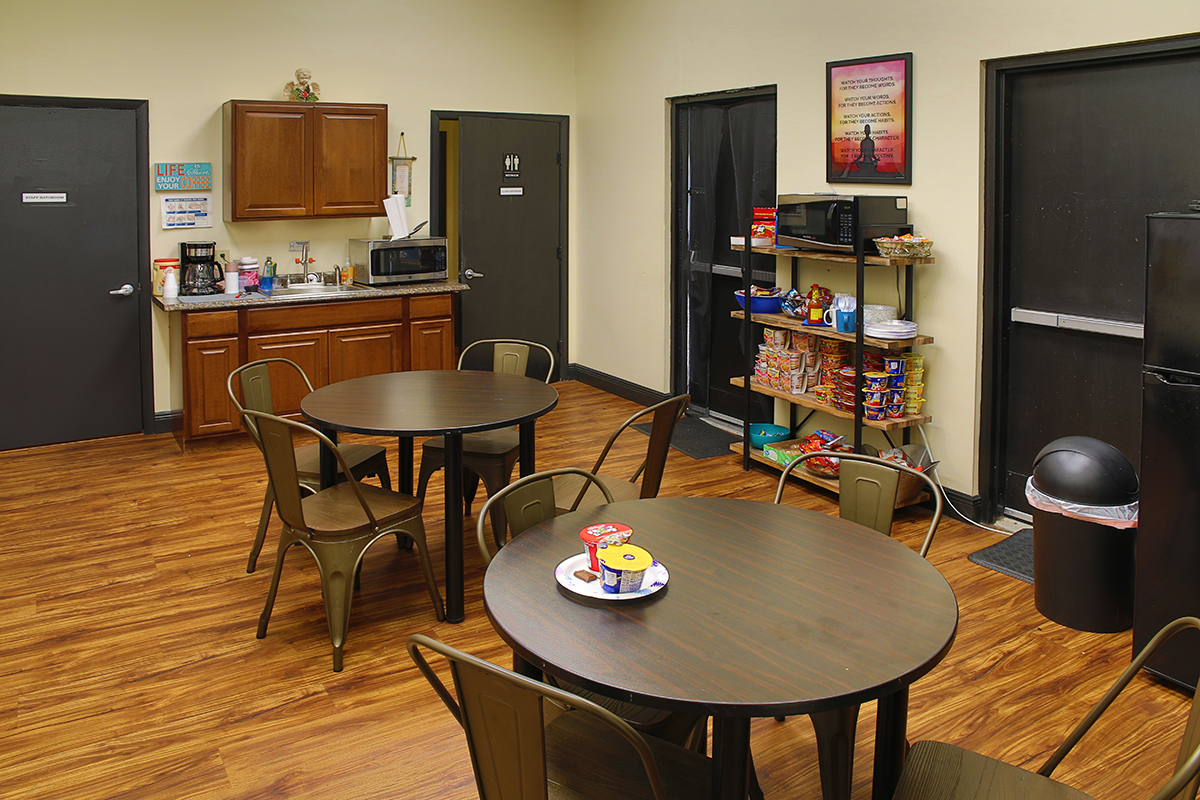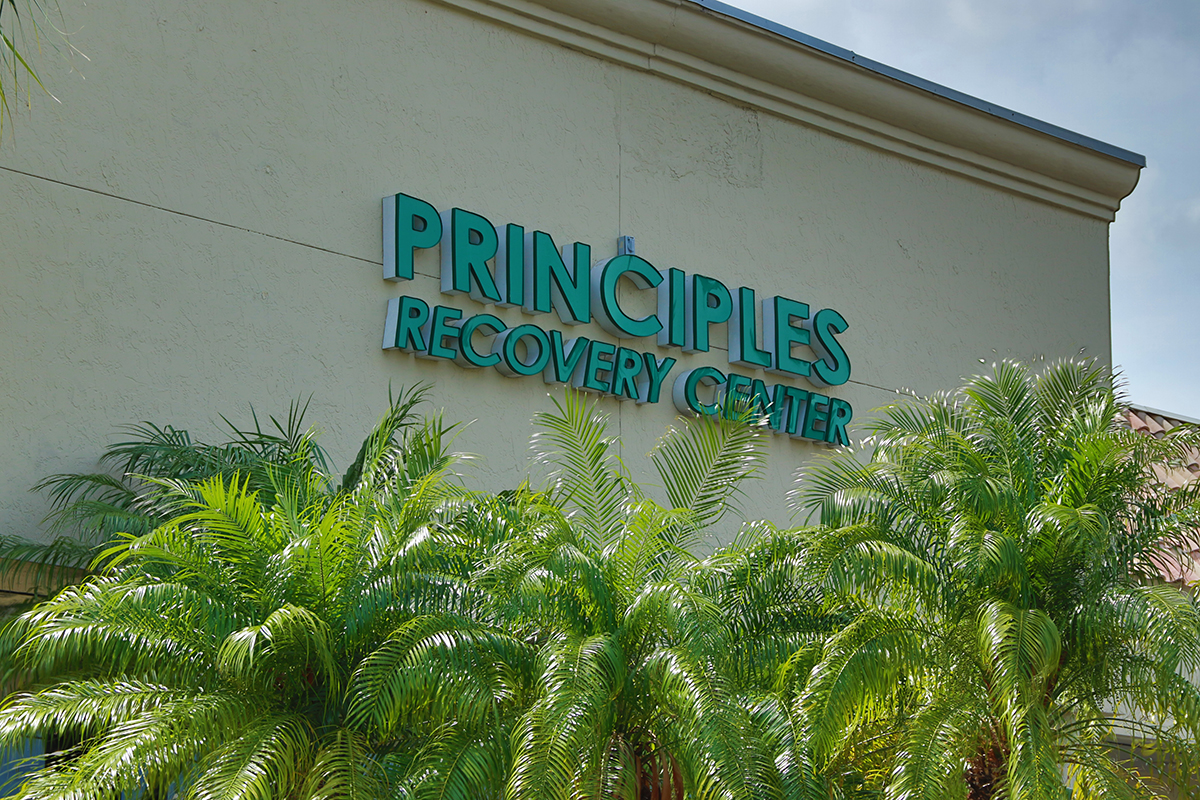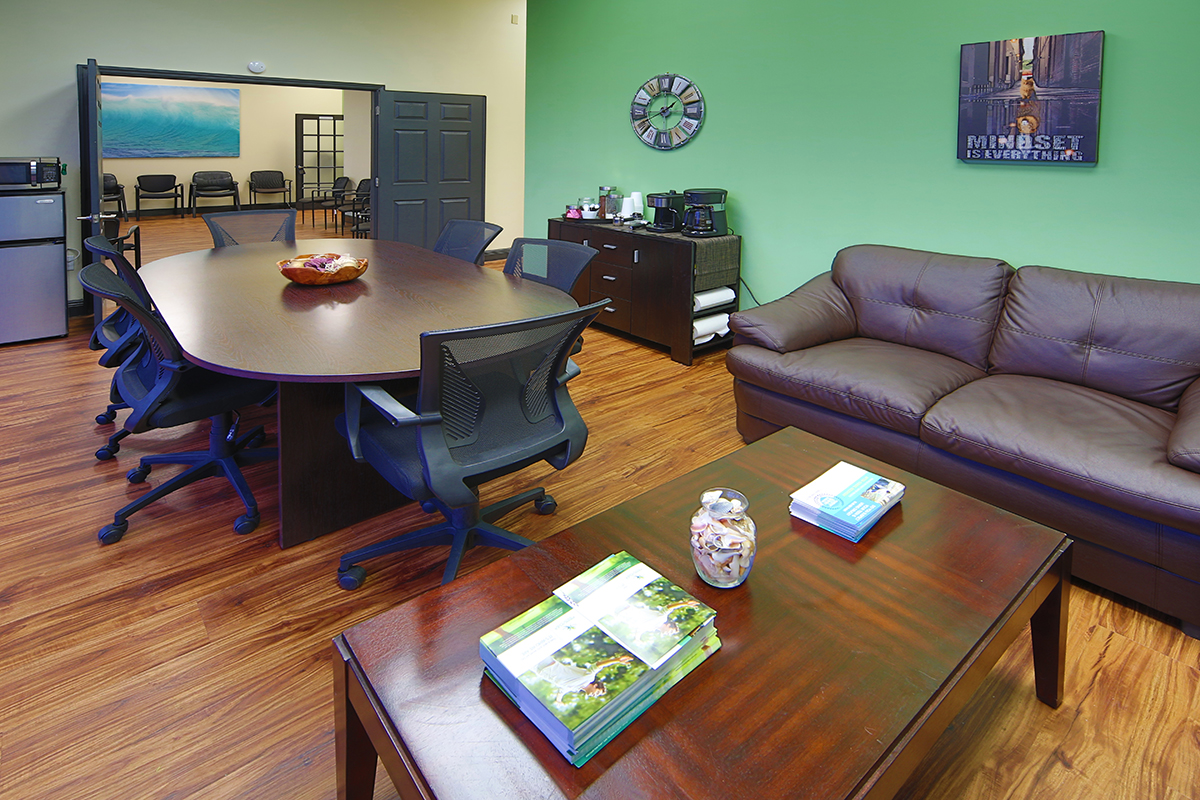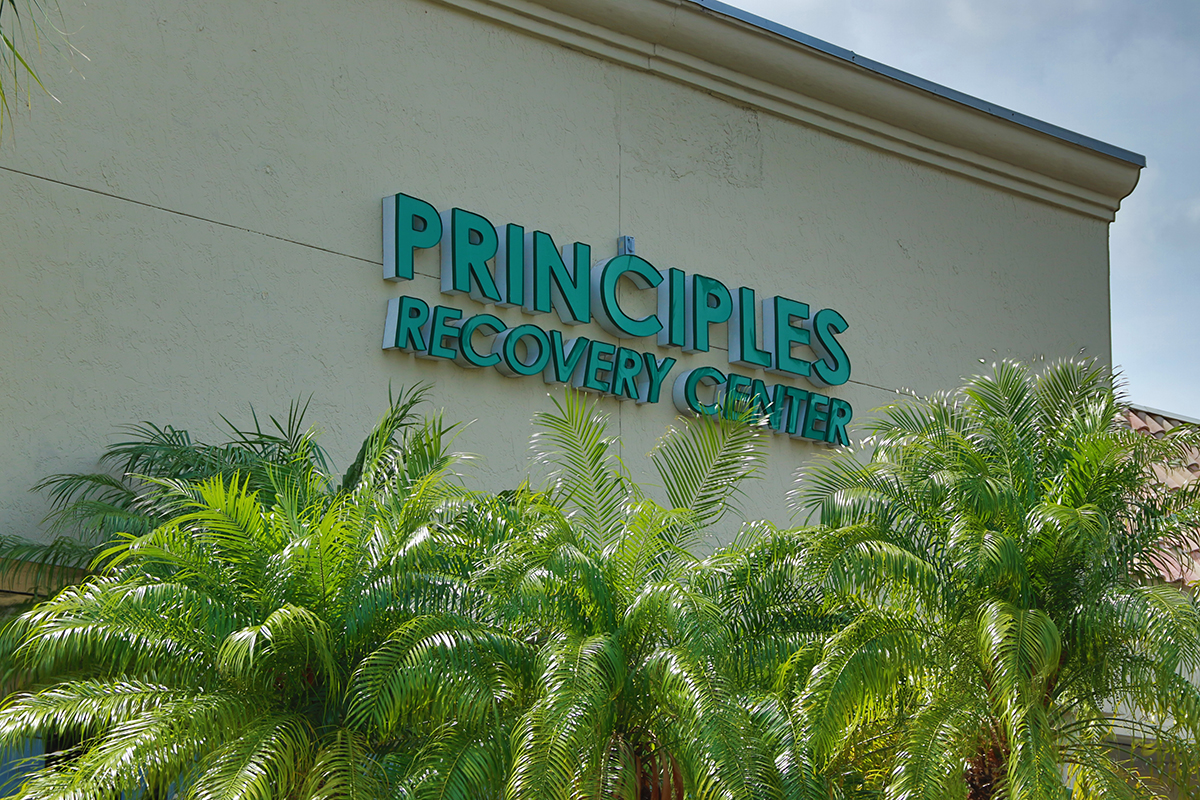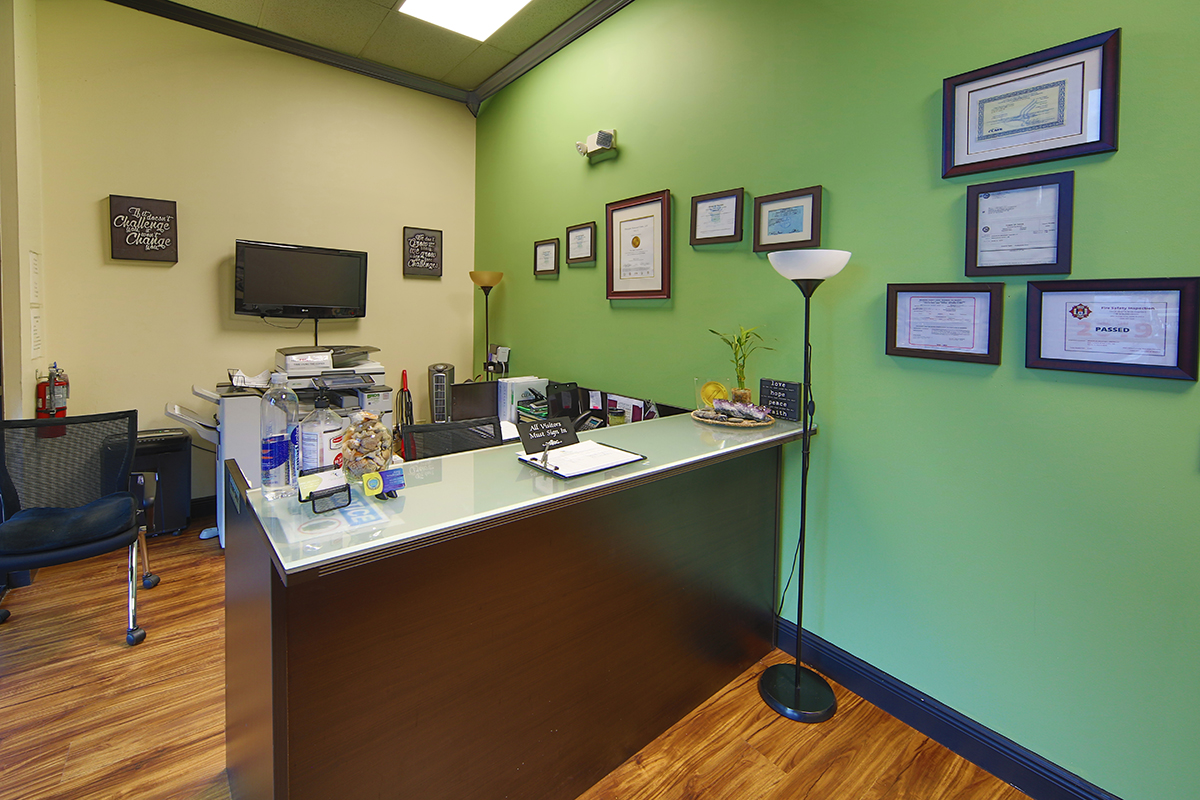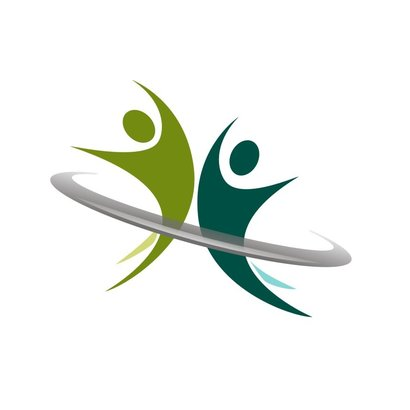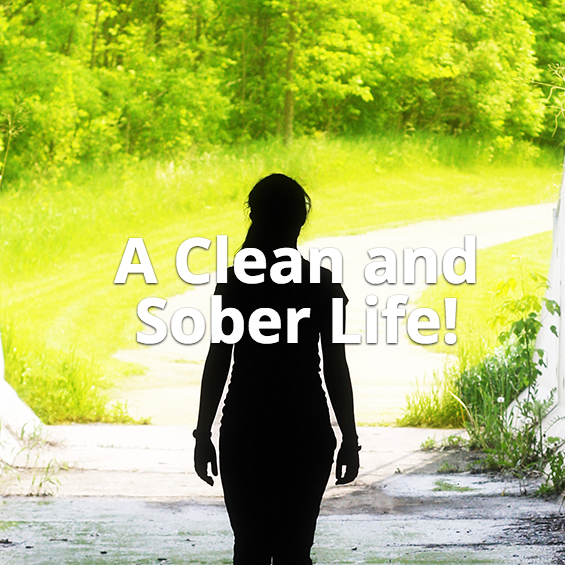Principles Recovery Center
Overview
Principles Recovery Center is a substance abuse treatment center for people seeking treatment near Broward County. As part of their treatment modalities for recovery, Principles Recovery Center provides 12-step facilitation, group counseling, and experiential therapy during treatment. Principles Recovery Center is located in Fort Lauderdale, Florida, accepting private health insurance for treatment.
Principles Recovery Center at a Glance
Payment Options
- Private health insurance
- Cash or self-payment
- Payment assistance (check with facility for details)
- Monthly
- Federal military insurance (e.g., TRICARE)
Assessments
- Comprehensive mental health assessment
- Comprehensive substance use assessment
- Screening for tobacco use
- Outreach to persons in the community
- Screening for mental disorders
Age Groups
- Adults
- Young adults
- Children/adolescents
- Seniors or older adults
- Adolescents
Ancillary Services
- Case management service
- Integrated primary care services
- Suicide prevention services
- Domestic violence services, including family or partner
- Early intervention for HIV
Accreditations
The Joint Commission:

The Joint Commission accreditation signifies that a facility has met rigorous standards of excellence in patient care, treatment, and safety. It assures individuals and healthcare professionals that the accredited facility provides high-quality, evidence-based care for addiction and mental health issues, fostering trust and confidence in their services.
LegitScript:

Only after successfully completing a rigorous application process, programs and services achieve LegitScript certification. This process, which commenced in 2018, aims to qualify only reputable providers of mental health and co-occurring substance abuse treatment for inclusion on Google's network while ensuring compliance with HIPAA privacy laws.
State mental health department:
State mental health department accreditation refers to the process of evaluating and certifying the quality and standards of a state's mental health department, ensuring that it provides high-quality services and meets specific criteria for mental health care. The accreditation process is performed by a third-party organization and helps to improve the overall care and treatment of individuals with mental health conditions.
State department of health:

Government agencies issue State Licenses, granting rehabilitation organizations permission to operate their businesses lawfully within specific geographic regions. The specific licenses needed for legal operation are typically determined by the type of rehabilitation program offered by the facility and its physical location.
Treatment At Principles Recovery Center

Conditions Treated
Mental health treatment:
Mental health services are essential during treatment for drug and alcohol addiction, whether you receive treatment in an inpatient or outpatient setting. While receiving inpatient care, you can expect to have round-the-clock access to mental health therapists and medical staff. Additionally, you will likely receive a number of different therapies and mental health options like individual and group counseling, addiction and relapse prevention education, and coping skills training.
Alcoholism:
Alcohol addiction is a condition where a person's brain gets used to having alcohol, making it hard for them to control their drinking. This can lead to feeling down, acting without thinking, wanting alcohol strongly, and feeling sick if they don't drink. To help with this, treatment programs are available. These usually include a guided process to safely stop drinking, talking with professionals to work through problems, and joining support groups with others facing similar issues. While these treatments can't fully cure the addiction, they provide tools and support to help individuals live a better life and keep their drinking under control.
Opioid Addiction:
Opioid rehabilitation centers are dedicated to assisting individuals on the path to recovery from opioid addiction. They provide specialized care for those struggling with addiction to substances like heroin and prescription opioids such as oxycodone. These facilities offer a comprehensive approach, including medical detoxification, ongoing medical assistance (including medication-based treatment), and therapeutic support to address the root causes of addiction.
Substance use treatment:
Substance use rehabilitation represents a holistic treatment strategy tailored to aid individuals grappling with drug or alcohol addiction. This comprehensive rehabilitation method encompasses two key aspects: first, addressing the physical dependency, often commencing with detoxification, and second, tackling the psychological triggers through a range of therapeutic techniques. The ultimate aim is to empower individuals to attain and sustain sobriety while providing them with the necessary skills and coping mechanisms to successfully reintegrate into society and lead a life free from substance abuse.
Co-occurring Disorders:
Dual-diagnosis rehabilitation centers often offer the most suitable approach for addressing concurrent mental health and substance abuse issues. These facilities typically employ a team of medical and behavioral specialists who utilize a variety of interventions and create a conducive healing environment to support your journey toward lasting recovery. Their comprehensive treatment approach typically encompasses evidence-based therapies such as cognitive-behavioral therapy, recovery support meetings, 12-step facilitation, psychoeducation, skills training, and group therapy to help you achieve and maintain long-term wellness.

Levels Of Care
Partial Hospitalization Program:
A Partial Hospitalization Program (PHP) is an intensive rehabilitation option, typically designed for individuals with acute symptoms that are challenging to handle but don't necessitate round-the-clock care. PHPs provide structured therapeutic activities, which can include individual and group sessions, and generally operate 3-5 days a week, from approximately 9 am to 3 pm. While some PHPs are residential, allowing patients to stay overnight, others are non-residential, enabling patients to return home each evening. The duration of a PHP can range from 1 to 6 months, and some programs also offer transportation and meals to participants.
Intensive outpatient treatment:
Intensive outpatient (IOP) supports clients in maintaining their sobriety by providing tailored, high-quality care that adapts to their changing requirements. Clients participate in numerous weekly treatment sessions, generally receiving between nine to twenty hours of outpatient care. As clients achieve stability, the treatment frequency and intensity gradually diminish. Many intensive outpatient rehabilitation centers offer a range of services, including addiction counseling, training in life skills essential for recovery, and medication-assisted treatment (MAT). Additionally, evidence-based complementary therapies are frequently integrated into the program.
Detoxification:
Detoxification (detox) is the process of clearing the body of drugs or alcohol that an individual has consumed. The purpose of detox is to safely manage withdrawal symptoms when someone stops taking drugs or alcohol. It denotes a clearing of toxins from the body of the patient who is acutely intoxicated and/or dependent on substances of abuse. Detoxification seeks to minimize the physical harm caused by the abuse of substances.
Aftercare:
Finishing a drug or alcohol rehab program is not the conclusion of substance abuse treatment but rather a pivotal step toward long-term recovery. Aftercare encompasses devising a sustainable recovery plan coupled with enduring support. It may include sober living environments such as halfway houses, career counseling, and connecting patients with community support programs like Alcoholics Anonymous (AA) or Narcotics Anonymous (NA). This holistic approach ensures a smooth transition into a substance-free life while bolstering resilience against relapse.
Halfway house:
A sober living home provides a supportive environment for individuals recovering from substance abuse. Distinct from inpatient rehab centers, it prioritizes a drug-free living without continuous medical oversight. Residents follow specific rules, including curfews and required group sessions, and may undergo random drug screenings. This setting merges autonomy with responsibility, aiding residents in their return to society, fostering coping mechanisms, and upholding sobriety alongside peers facing comparable recovery journeys.
Outpatient:
Outpatient treatment at rehab centers provides adaptable therapy schedules, usually spanning 1-3 hours weekly, enabling participants to maintain their everyday routines while undergoing treatment. On the other hand, intensive outpatient programs require a more dedicated time investment, frequently around 9-15 hours a week, delivering a deeper therapeutic experience without the commitment of inpatient residency.
Outpatient day treatment or partial hospitalization:
Outpatient day treatment or partial hospitalization level of care is a type of mental health treatment that provides a high level of care outside of a traditional inpatient setting. It typically involves intensive therapy and support services for several hours each day, several days per week. This level of care is designed for individuals who require more support than traditional outpatient therapy but do not need 24-hour inpatient care.
Regular outpatient treatment:
Regular Outpatient Treatment involves scheduled therapy sessions typically held on an outpatient basis, allowing individuals to receive essential support while maintaining their daily routines. These sessions usually range from one to three times per week, providing a flexible approach to recovery that accommodates the individual's needs and progress. It offers a structured environment for therapy and counseling, enabling individuals to address addiction or mental health issues while continuing to engage in their daily responsibilities.

Treatment Modalities
12-step facilitation:
Recovery models grounded in 12-step programs prominently incorporate peer coaching, strongly emphasizing personal growth as the pathway to enduring sobriety. Regular participation in 12-step meetings, known for their anonymity, cost-free access, and daily availability, is encouraged. The 12 steps of recovery, anchored in spiritual principles, guide participants in unraveling the core issues of their addiction, taking accountability for their decisions, and coming to terms with aspects beyond their control. Chosen by the individuals themselves, sponsors offer personalized one-on-one mentorship, aiding in navigating through the recovery journey.
Group counseling:
Group Counseling is a therapeutic approach where individuals come together under the guidance of a trained counselor to share experiences, offer support, and gain insights. This collective format promotes mutual understanding and growth, allowing participants to learn from one another's perspectives and challenges.
Experiential Therapy:
Experiential Therapy is a therapeutic approach that encourages individuals to identify and address hidden or subconscious issues through activities, actions, and direct experiences. Unlike traditional talk therapy, this method involves engaging in activities, role-playing, and other interactive techniques to garner emotional expression and self-discovery. By placing individuals in relevant situations, therapists can observe their behaviors and emotions in real-time, allowing for immediate feedback and insight. Through this interactive process, individuals can better understand their feelings and behaviors, develop coping mechanisms, and work towards resolving personal conflicts.
Family counseling:
Family Counseling is a therapeutic approach that seeks to address and resolve conflicts, improve communication, and strengthen relationships within the family unit. By providing a safe space for family members to express their feelings and concerns, a trained counselor facilitates understanding and collaboration among members, promoting healthier dynamics and enhancing overall family well-being.
Individual psychotherapy:
Individual therapy is a one-on-one therapeutic interaction between a therapist and a client to address personal challenges, foster self-awareness, and promote mental, emotional, and behavioral growth. This setting provides a confidential and supportive environment for individuals to explore their thoughts, feelings, and behaviors, identify goals, and develop coping strategies. Individual therapy can be beneficial for a range of concerns, including anxiety, depression, stress management, relationship issues, and life transitions.
Dialectical Behavior Therapy:
Dialectical Behavior Therapy (DBT) is a cognitive-behavioral therapeutic approach primarily to treat individuals with borderline personality disorder. It combines standard cognitive-behavioral techniques with distress tolerance, acceptance, and mindfulness concepts. DBT emphasizes the balance between accepting and changing behaviors, aiming to help patients build life skills, regulate emotions, and improve interpersonal relationships. It has since been adapted for and shown effectiveness in treating a variety of other mental health conditions.
Intervention Services:
Intervention services assist families and friends of addicts in orchestrating an intervention, a meeting where concerned individuals express their worries and urge the addict to seek treatment. Expert interventionists aid in planning, assembling, and conversing with the affected individual. They direct participants on how to convey the adverse effects of the addict's actions and emphasize the need for external assistance to tackle the addiction. The ultimate goal of an intervention is to encourage the addict to enter rehab and receive the necessary help.
Holistic Treatment:
Holistic Treatment refers to an integrative approach to addiction recovery and rehabilitation that addresses the physical, emotional, mental, and spiritual aspects of an individual's well-being. Beyond just focusing on the addiction itself, this approach emphasizes whole-person healing and often incorporates alternative therapies such as acupuncture, yoga, meditation, and nutritional counseling. By treating the entire person and not just the symptoms of addiction, holistic treatment aims to ensure a more balanced and sustainable recovery.
Cognitive behavioral therapy:
Cognitive Behavioral Therapy (CBT) is a widely practiced form of psychotherapy that seeks to address dysfunctional emotions, behaviors, and thoughts through a goal-oriented, systematic process. It encourages individuals to challenge distorted cognitions and change destructive patterns of behavior by promoting self-awareness and effective coping strategies. CBT is often used to treat a range of disorders including anxiety, depression, and stress, making it a versatile and practical therapeutic approach. Through enhancing an individual's capacity to manage life's challenges, CBT contributes to improved mental well-being and overall quality of life.
Telemedicine/telehealth therapy:
Telehealth provides a secure and handy way to access behavioral health care from your home. It eliminates the need for travel, time off work, or organizing childcare. A range of services, including individual therapy, group sessions, and monitoring for anxiety and depression, are available remotely. Rest assured, telehealth video sessions are not recorded, ensuring your information remains as confidential as in-person consultations.
Substance use disorder counseling:
Substance use disorder counseling treatment modalities refer to various approaches and methods used in the counseling and treatment of individuals with substance use problems. This can include individual therapy, group therapy, cognitive behavioral therapy, motivational interviewing, family therapy, and 12-step programs. The goal is to help the individual overcome their substance use, develop healthy coping skills, and lead a fulfilling life in recovery.
Trauma-related counseling:
Trauma therapy addresses the deep-seated emotional and psychological wounds often linked with substance abuse disorders. Recognizing that traumatic experiences can be a root cause or a significant contributing factor to substance addiction, this therapeutic approach seeks to help individuals understand, process, and heal from their traumas. Doing so fosters emotional healing and bolsters the individual's chances of long-term recovery from addiction. Integrating trauma-informed care into addiction treatment ensures a comprehensive approach that addresses substance abuse's symptoms and underlying causes.
Smoking/vaping/tobacco cessation counseling:
Tobacco Cessation Counseling is a specialized form of guidance and support aimed at helping individuals quit tobacco use. Through a combination of motivational strategies, behavioral techniques, and education on the health risks associated with tobacco, trained counselors assist users in understanding their addiction, developing a personalized quit plan, and navigating the challenges of withdrawal and relapse prevention. This counseling approach can significantly increase the likelihood of successfully quitting and maintaining a tobacco-free lifestyle.
Marital/couples counseling:
Marital/couples counseling treatment modalities refer to various therapeutic approaches used to help couples resolve conflicts, improve communication, and strengthen their relationship. These modalities can include cognitive-behavioral therapy, emotionally focused therapy, solution-focused therapy, and integrative approaches. The goal of these treatments is to help couples identify and address underlying issues and develop healthy relationship dynamics.
Contingency management/motivational incentives:
Contingency management and motivational incentives are evidence-based treatment modalities used in addiction and behavioral health programs. Contingency management involves the use of rewards to reinforce positive behaviors and change negative behaviors, while motivational incentives provide incentives to engage in treatment and sustain recovery. Both approaches are designed to increase motivation and engagement in treatment and have been shown to be effective in promoting positive outcomes.
Motivational interviewing:
Motivational Interviewing (MI) is a client-centered therapeutic approach that fosters behavioral change by assisting individuals in exploring and resolving ambivalence. Specifically tailored for addiction treatment, MI helps clients unearth their own motivations to quit substance use and empowers them to take the lead in their recovery journey. Therapists guide clients toward their goals and self-determined pathways to sobriety through empathetic conversation and skillful questioning.
Anger management:
"Anger Management" refers to a set of techniques and strategies designed to help individuals recognize and control their anger effectively. By understanding the triggers and responses to anger, individuals can learn to express themselves calmly and non-confrontational. Proper anger management prevents potential conflicts, ensures better interpersonal relationships, and promotes mental well-being and overall health.
Matrix Model:
The Matrix Model involves clients in group and individual counseling, psychoeducation, and skill-building exercises to boost self-awareness, coping skills, and well-being. It prioritizes creating a supportive, collaborative therapy environment, promoting active client involvement in their recovery. This approach integrates cognitive-behavioral therapy, 12-step facilitation, family education, and relapse prevention strategies into a comprehensive evidence-based program.
Community reinforcement plus vouchers:
Community Reinforcement + Vouchers is a comprehensive behavioral treatment program that emphasizes the role of social and environmental factors in promoting sustained abstinence from drugs and alcohol. The program combines positive reinforcement for drug-free behaviors with a voucher-based system, wherein participants earn vouchers for negative drug tests. These vouchers can be exchanged for goods and services supporting a drug-free lifestyle. The approach is especially effective in treating substance use disorders by creating a supportive environment and providing tangible rewards for abstinence.
Relapse prevention:
The Relapse Prevention Model plays a pivotal role in the treatment of alcoholism. Utilizing a blend of Cognitive Behavioral Therapy (CBT), this model is particularly valuable for individuals who have experienced multiple relapses. Through this approach, those in recovery are equipped with essential coping skills, empowered for their journey, and guided in adopting healthier habits.
Treatment for other addiction disorder:
Treatment for other addiction disorders typically involve a combination of therapy and medication. This may include individual therapy, group therapy, and behavioral therapy. Medications may be prescribed to help manage symptoms and reduce cravings. Additionally, support groups and aftercare programs can be beneficial in maintaining recovery and preventing relapse. The treatment modality should be tailored to the individual's specific needs and circumstances.
Ancillary Services
Languages
- Spanish
Additional Services
- Pharmacotherapies administered during treatment
- Holistic Treatment
- Breathalyzer or blood alcohol testing
Special Programs
- Clients with co-occurring mental and substance use disorders
- Veterans
- Active duty military
- Members of military families
- Criminal justice (other than DUI/DWI)/Forensic clients
Contact Information
DISCLAIMER: The facility name, logo and brand are the property and registered trademarks of Principles Recovery Center, and are being used for identification and informational purposes only. Use of these names, logos and brands shall not imply endorsement. BetterAddictionCare.com is not affiliated with or sponsored by Principles Recovery Center.
